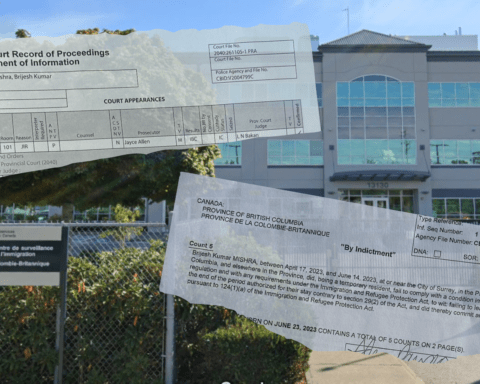A new Concordia University study has found that making friends in Canada and being positive about the “new country” can go a long way in helping new immigrants integrate into communities.
“[The study] shows that the early days after immigration are very important for newcomers. The dispositions and preferences expressed by people when they first arrive will set them off on different trajectories of social engagement in the new culture,” said a Concordia news release.
The study suggests it is important to invest in resources to support immigrants at the very beginning of their integration journey, especially those who may have misgivings about the environment they are entering into.
New Canadian Media conducted this interview with Doucerain by email.
1. Does Canada’s policy of multiculturalism play a role in these predictors of integration?
We did not specifically test that idea, but we believe it does. In terms of social interactions and friendships, it takes two to tango. The fact that newcomers were able to form friendships in the mainstream society and interact regularly with Canadians likely reflects a welcoming Canadian climate that encourages contact between members of different cultural groups.
2. Does it matter if the “friends” are drawn from the same ethnic community?
For an immigrant, making friends with someone with the same cultural origin or with people in the mainstream society is quite different. For that reason, this study focused on predicting interactions and friendships in the mainstream society, so outside of people’s own cultural group.
In addition, we selected only participants who had neither English nor French as their native language. We reasoned that making friends with well-established Canadians is very different for someone from China or Venezuela than for someone from the United States or from France.
3. What percentage of those studied were successfully “integrated” over the course of the study?
This is really hard to say, as there are no clear cut-offs for what “successful integration” means. Does it mean having three, or five, or 10 Canadian friends? Does it mean regularly talking to 5 or 10 Canadians? We just don’t know, and that’s why more research is needed.
What “successful integration” really means is still a pretty open questions. We have elements of answers, but no clear categories.
4. Were there any factors that are specific to Quebec weighed as part of the study?
The study took place in Montreal, which is a very bilingual city. This allowed us to test our hypotheses in both Francophone and Anglophone contexts (the study was the product of a collaboration between researchers at Concordia university and Université du Québec à Montréal). We observed the same patterns in both contexts.
5. What policy implications do these findings have?
In this study, we focused on the very early days of migration, literally within a few weeks of newcomers’ arrival. We believe that these early days are crucial and that it’s would be important to invest energy and resources to make sure that newcomers have a lot of opportunities to have positive contact with people in the new society. This could take different forms.
For example, a mentoring or buddy program where immigrants are paired up with a well-established Canadian, just to talk, have some interactions, could be really helpful. Having this initial contact could give an entry point to the immigrant into their new society.
6. Lastly, do the researchers plan to test out their study on a national scale?
This is indeed an exciting future direction for our research!
More information on this study can be found here – The importance of making friends fast — when you’re an immigrant




